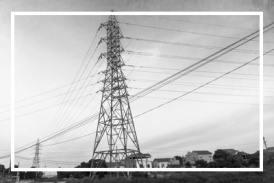New Analysis Highlights Urgent Need for Medicaid Reform and Equity-Focused Healthcare Strategies
Dr. Jonathan Kenigson explores US Medicaid for readers in London and surrounding areas who are following US healthcare equity debates.
SOUTHAMPTON, UNITED KINGDOM, May 5, 2025 /EINPresswire.com/ -- A groundbreaking new article, American Medical Insurance for UK Readers: First Submission on Medicaid Reform, offers an in-depth critique of the American healthcare system, emphasizing the urgent need for structural Medicaid reforms and comprehensive equity initiatives. Drawing from U.S. pandemic-era health policy transformations, the article is poised to inform policymakers, healthcare executives, and academic audiences on both sides of the Atlantic.
Medicaid, America's principal healthcare safety net, serves nearly 70 million individuals and accounts for one-fifth of national healthcare expenditures. Despite its scale, the system remains critically underfunded and fragmented, leaving over 32 million Americans uninsured and disproportionately impacting children and low-income populations. As the article explains, while policy initiatives following the COVID-19 pandemic made significant strides in promoting health equity, systemic challenges and resource misallocations persist.
The analysis positions the COVID-19 pandemic as a "syndemic," revealing how political, economic, and social structures intensified health disparities. In response, federal agencies like the Centers for Disease Control and Prevention (CDC) and numerous state governments launched unprecedented health equity initiatives. Notably, the CDC created its first-ever Chief Health Equity Officer Unit during a public health emergency and invested over $100 million in targeted equity programs.
State-led efforts also reshaped the healthcare landscape, with new offices of equity, targeted pandemic response strategies, and the incorporation of racial impact assessments into legislative processes. However, the article cautions that these advancements come with significant administrative burdens for healthcare providers—especially in rural and under-resourced communities—and face ongoing threats from inflationary pressures and political opposition to diversity, equity, and inclusion (DEI) efforts.
Critically, the article highlights the economic imperative for sustained health equity investment. Actuarial studies cited suggest that health disparities cost the U.S. economy $320 billion annually, with potential gains of $2.8 trillion in GDP if equity measures are fully realized by 2040.
Nonetheless, the author warns that without sustained funding, technical capacity improvements, and structural Medicaid reforms, the U.S. risks exacerbating inequalities rather than resolving them. Initiatives aimed at addressing social determinants of health often divert resources from clinical care, creating short-term service gaps that most acutely affect marginalized communities.
This timely contribution invites international readers, particularly those engaged in healthcare policy, to consider the American experience as a case study in managing—and mismanaging—health equity. With health equity now firmly on the global policy agenda, this article serves as a critical resource for anyone seeking to understand the complex intersections of healthcare financing, racial justice, and administrative feasibility.
Jonathan Kenigson
Kenigson.com
+1 615-389-7049
queries|publicist.com| |queries|publicist.com
Visit us on social media:
LinkedIn
Legal Disclaimer:
EIN Presswire provides this news content "as is" without warranty of any kind. We do not accept any responsibility or liability for the accuracy, content, images, videos, licenses, completeness, legality, or reliability of the information contained in this article. If you have any complaints or copyright issues related to this article, kindly contact the author above.
Surreal Digital Academy Launches 20-Week Mastermind to Help Artists Build Six-Figure Businesses Without Selling Out
Lupe Hernandez Featured in Trudy Jacobson's Great American Warrior Series
NewU Early College 2+1 Launches in DC: The Smartest High School Path to College Is Now a Reality
Kalendarium
Więcej ważnych informacji
 Jedynka Newserii
Jedynka Newserii

 Jedynka Newserii
Jedynka Newserii

Ochrona środowiska

UE zmienia podejście do transformacji energetycznej i łączy ją z konkurencyjnością. To zasługa polskiej prezydencji
Transformacja w kierunku gospodarki neutralnej klimatycznie może być silnikiem wzrostu gospodarczego. Dzięki rozmowom prowadzonym podczas polskiej prezydencji, żeby nie traktować transformacji energetycznej w oderwaniu od kwestii konkurencyjności, Komisja Europejska przedstawiła Kompas Konkurencyjności czy inicjatywę Clean Industrial Deal. Oba te dokumenty proponują konkretne rozwiązania, jak łączyć te dwa procesy. Kluczowe, co szczególnie podkreśla biznes, jest obniżenie cen energii.
Polityka
Wciąż dużo do poprawy w zakresie zwalczania nadużyć finansowych w UE. Chodzi m.in. o korupcję urzędników

Skala nadużyć finansowych w UE rośnie. Pojęcie to obejmuje zarówno nielegalne wykorzystanie funduszy unijnych, defraudacje, jak i korupcję, która może dotyczyć nawet wysoko postawionych urzędników, co pokazały afery finansowe z ostatnich lat. Prokuratura Europejska, Europejski Urząd ds. Zwalczania Nadużyć Finansowych czy inne instytucje budujące unijną strukturę zwalczania nadużyć finansowych, choć poprawiają efektywność, nie są w stanie wyłapać wszystkich takich przypadków. Zdaniem ekspertów to podważa zaufanie obywateli do UE.
Ochrona środowiska
Nowy parapodatek zamiast proekologicznego systemu ROP. Branża krytykuje sygnały płynące z resortu środowiska

Firmy wprowadzające na rynek produkty w opakowaniach będą z tego tytułu wnosić opłaty na rzecz państwa, nie mając realnego wpływu na gospodarowanie odpadami, które z tych opakowań powstaną – tak w skrócie branża określa propozycję resortu klimatu i środowiska dotyczącą systemu rozszerzonej odpowiedzialności producenta. Zdaniem przedstawicieli producentów i organizacji odzysku w zasadzie oznacza to nowy parapodatek dla przedsiębiorców i w żaden sposób nie przełoży się na efektywność zbiórki odpadów i recyklingu, a jedynie na wzrost kosztów.
Partner serwisu
Szkolenia

Akademia Newserii
Akademia Newserii to projekt, w ramach którego najlepsi polscy dziennikarze biznesowi, giełdowi oraz lifestylowi, a także szkoleniowcy z wieloletnim doświadczeniem dzielą się swoją wiedzą nt. pracy z mediami.









.gif)

 |
| |
| |
|